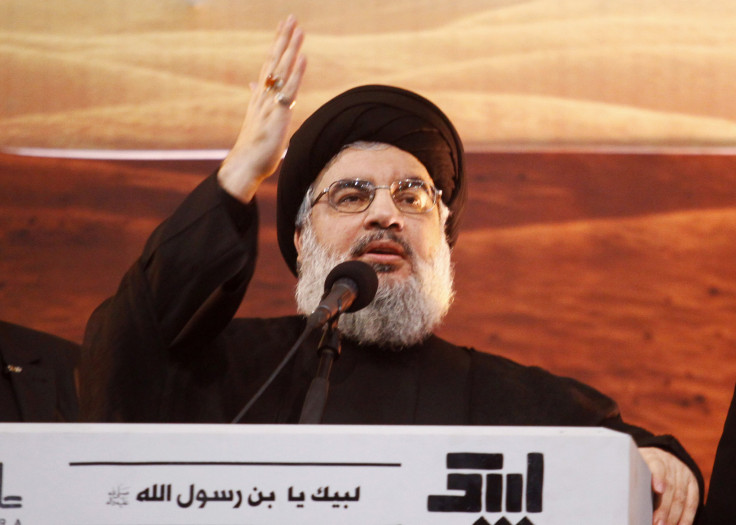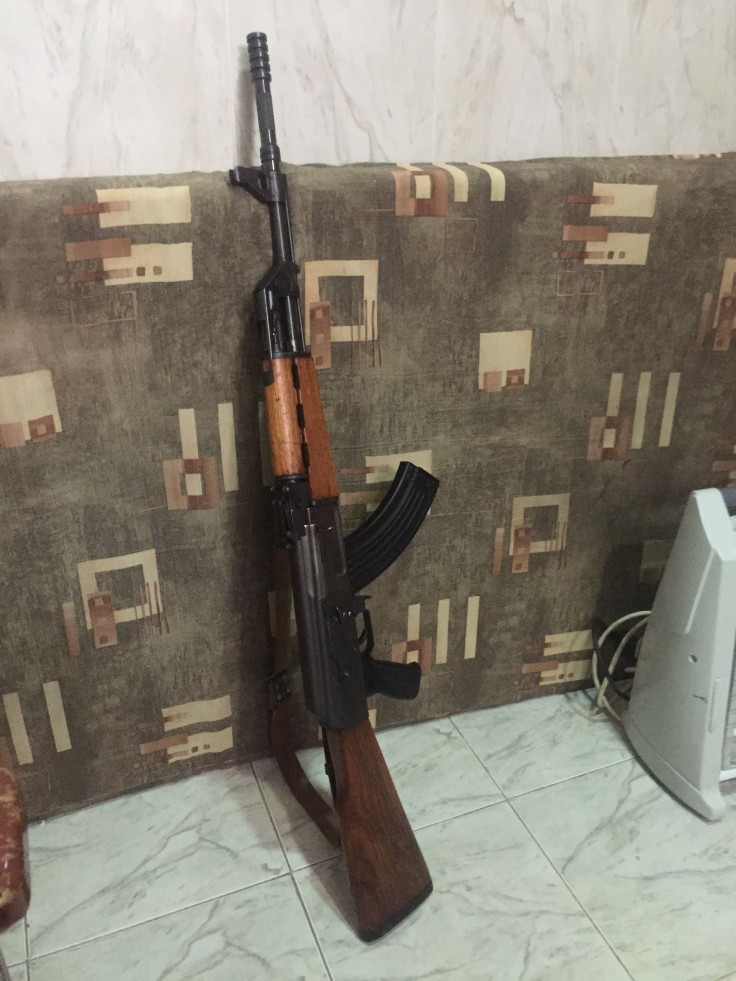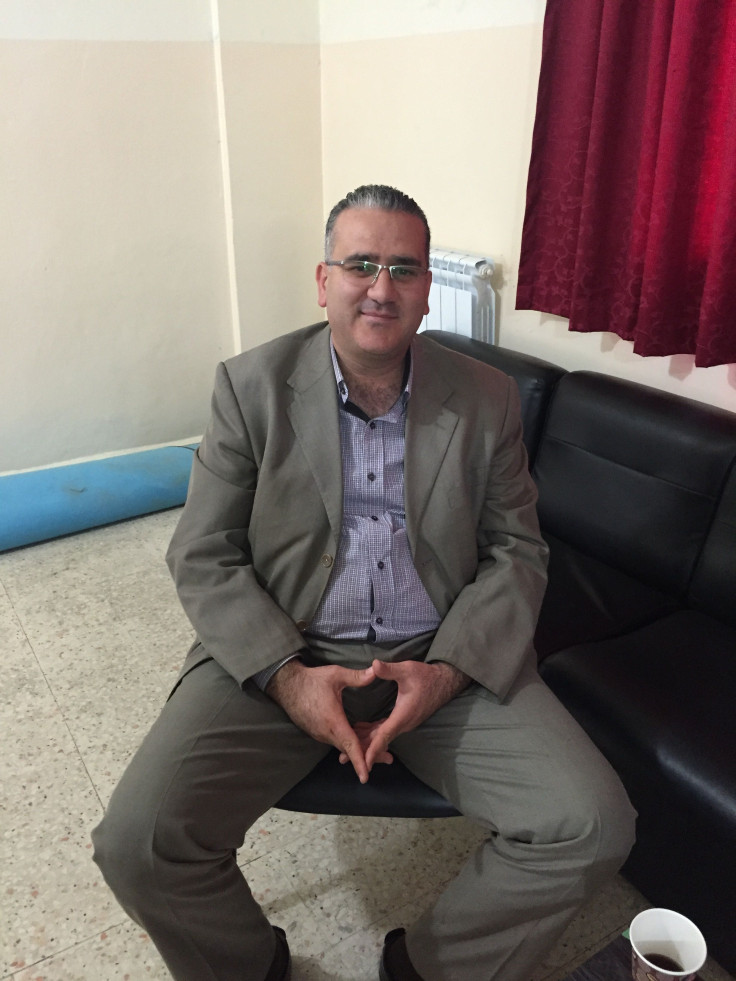Christian, Sunni And Shia: Meet Hezbollah's Non-Denominational Military Branch Defending Lebanon, Fighting In Syria

BEKAA VALLEY, Lebanon -- Usman is a Sunni Muslim. He also fights alongside Shiite militant group Hezbollah. For Usman it’s not a contradiction. The sectarian rivalries that are tearing up the rest of the region -- in Syria, Iraq, Yemen and Libya -- are secondary to the Lebanese nationalism that dominates this Sunni-dominant, mountainous region on the Lebanese-Syrian border.
“Lebanon is my country ... I am patriotic. I wanted to join the resistance and Hezbollah came by and they offered the ideology of resistance,” Usman, whose whole family is Sunni and supports Hezbollah, told International Business Times. “We don’t talk about sectarian issues.”
A plumber by day, Usman moonlights as a foot soldier with Saraya al-Muqawama (Resistance Brigades), a nondenominational military wing of Hezbollah made for Lebanese fighters whose religion -- or lack thereof -- makes it impossible for them to join the so-called Party of God, funded by Shiite powerhouse Iran. Hezbollah’s way around this is the creation of Saraya, where Lebanese fighters from Sunni and Shiite Islam battle common enemies in Israel and Syria.
Sunni Muslims are not the only ones to join up: Christians and nonpracticing Shiites who subscribe to Hezbollah’s brand of violent resistance can also join the nondenominational brigade.
“Saraya al-Muqawama is made for non-extremist people,” said Sami Ramadan, a Sunni recruiter for the group. “Hezbollah has to be religious, but in Lebanon we are divided so why should Hezbollah be the only one who can resist? So Hezbollah made this [brigade] so everyone can join.”
Usman’s assault rifle, which he carries with him everywhere, is provided by Hezbollah. He is ever ready, he says, for the call to defend his homeland against local Sunni extremists or to deploy with the Shia militant group to fight the mostly Sunni opposition in neighboring Syria.

Hezbollah has been fighting in the Syrian conflict alongside Syrian President Bashar Assad and other Iran-backed Shiite militias for years, but it’s only recently that it started deploying Saraya units too.
In Syria, Saraya fighters are not fighting on the front lines, but constitute small units whose roles are primarily logistical and symbolic; aligning with different sects allows Hezbollah to enter Sunni and Christian areas without risking religiously motivated clashes.
Saraya “is there for us to make sure [ the other sects in Syria] are with us and not against us,” a high-ranking Hezbollah official told IBT. “We don’t underestimate our enemy. We have special guys to fight in Syria. Most guys in Saraya are not true fighters.”
Sunnis, Christians and other sects in Saraya are trained in the same camps as Shia Muslims. They receive the same military training, but once they’ve completed the course the two groups use separate names and uniforms. The only time they merge under the Hezbollah flag is during combat.
While thousands of Hezbollah soldiers fight in Syria, the majority of Saraya fighters are holding down the fort at home. Usman is “waiting for the call for Syria” but is first preparing to defend his home against neighboring Sunni villages that support the Islamic State group.
“I want to fight them before they reach here and it’s my duty to fight terrorism anywhere.”
Recruits are treated as equals in military training, but the brigades receive different ideological training. Hezbollah’s ideology focuses on the teachings of Shiite Islam, while Saraya focuses on explaining to recruits that their enemies are “the Zionists and now the takfiri [apostates], but they are equal enemies,” Ramadan said.
Sunni Lebanese fighters in Syria have gone in “because they are ordered by Hezbollah. They go with Hezbollah and they go in Hezbollah clothes,” Hamza Akl Hamieh, the infamous leader of a Sunni brigade in Baalbek with ties to Hezbollah, told IBT.
Hamieh, head of the Lebanese Castle Brigades, was formerly the head of the Amal Movement, an armed Shiite political party that had tensions with Hezbollah. Hamieh is a notorious figure who carried out at least six plane hijackings between 1979 and 1982. Reuniting with Hezbollah, he formed the Castle Brigade so that Sunnis in Baalbek could fight in Syria.
“People here are traders and their business is with the regime so the Sunnis here agreed to fight Daesh,” Hamieh said, using the Arabic acronym for the Islamic State group. “Here it is a life-and-death issue.”
Baalbek is a UNESCO World Heritage Site in the Bekaa Valley, an ancient Phoenician city that in recent times has become a Hezbollah stronghold. During the 2006 war with Israel, Israeli forces repeatedly targeted the area, killing dozens of civilians and forcing most residents to leave the area.

Many residents credit Hezbollah with liberating their country from what they refer to as the Israeli occupation, which has no doubt contributed to their nonsectarian support. Resistance ideology in Baalbek predated the creation of Hezbollah, Ramadan said. The high school economics teacher was previously the Sunni representative for the municipality of Baalbek, he told IBT, and a member of the Syrian Socialist National Party, a Lebanese political group that supported resistance efforts against Israel since the early 1970s, a decade before the creation of Hezbollah.
But not every Sunni in the area is enamored with Hezbollah, or is convinced that Saraya has the same goals. “We worry [Hezbollah] is paying money to young men from the Sunni community to recruit them for Saraya al-Moqawama and convince them that they are fighting the Israeli enemy, when in fact it uses them against us,” Sheikh Abd al-Hakim, imam of the Hebarieh mosque, told Now Lebanon earlier this year. “We were fighting Israel before Hezbollah existed.”
Usman and Ramadan confirmed they are paid for their role in Saraya al-Muqawama, but neither receives a monthly salary like Hezbollah fighters do. Their main fighting concerns, they say, are supporters of Islamic State and other Sunni extremist groups.
In the last year, Ramadan said, the number of Sunni recruits has been increasing “because we see the barbarians [Islamic State] across the border. It’s easier to fight the enemy at his house than when he reaches your home.”
© Copyright IBTimes 2024. All rights reserved.












